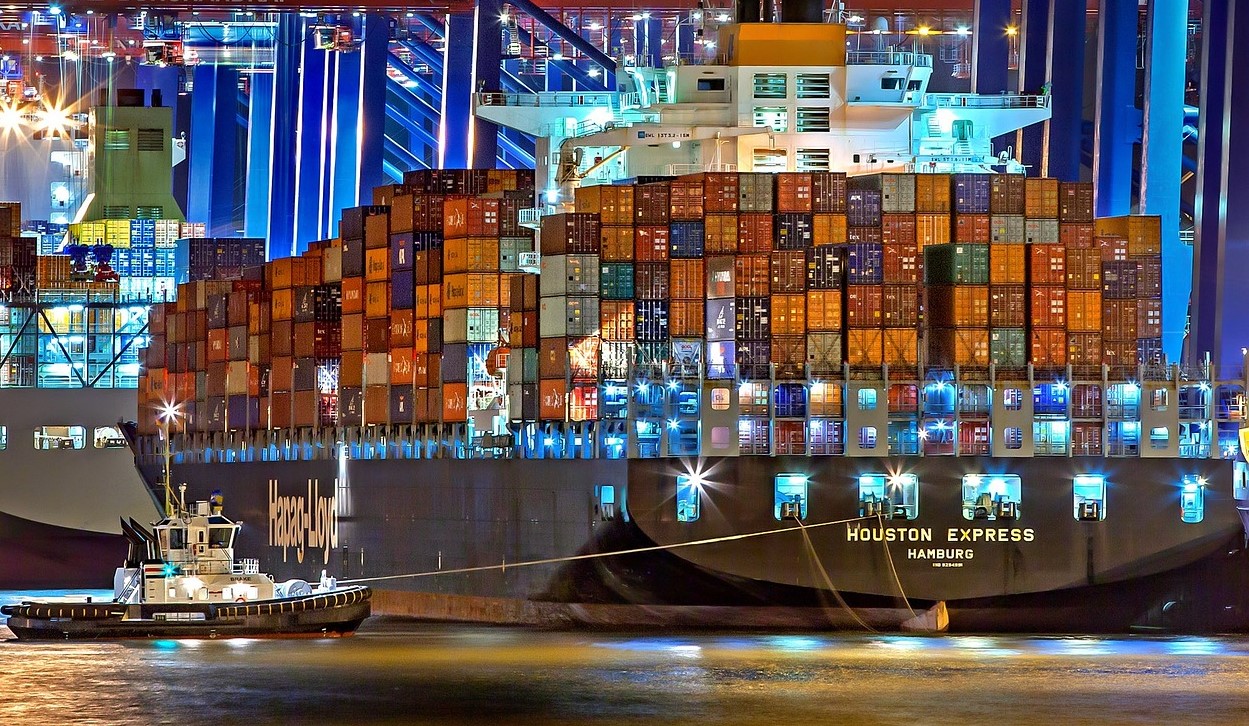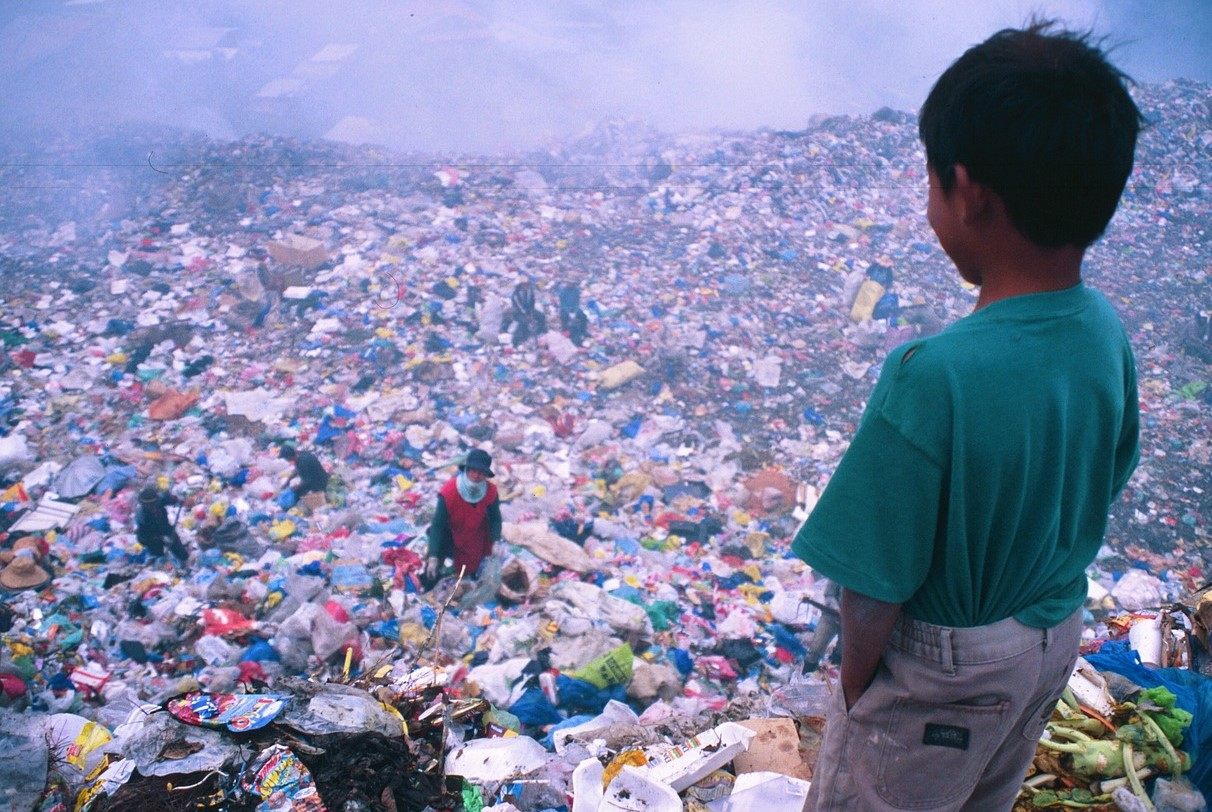Globalism,
What's the Issue?
(published July 1st, 2023)
| 🇨🇦 | 🕆 | 🇨🇦 | 🕆 | 🇨🇦 | 🕆 | L🇨🇦 |
Introduction
From our current time in history going forward, much of biblical prophecy is about defeating globalism. But what is it exactly; and, why does it fly in the face of God himself?
Included under the broad term globalism, are certain concepts which perfectly align with how Babylon is portrayed in the Bible. The way I see it, the definitions of globalism and Babylon are quite similar.
The word "babble" which basically means "incoherent or confusion", evolved from the word Babylon. Due to the mixing of various languages and cultures, ancient Babylon caused chaos and confusion for its inhabitants. Not the least of which, was their compilation of numerous gods. In general, Babylon's inhabitants were polytheists.
Opposite to how Babylon was (and is) structured - God wanted each of us to be equipped with a unique personality and raised within different cultures. This was all part of his master plan.
Likely even prior to the planet being created, I'm sure that God had already surmised that mankind would ultimately be comprised of numerous nations and cultures. He had even left a stronghold of underground riches for future nations to explore and inherit at the opportune time.
Mighty nations were built upon gold, silver, and oil, as well as earth's abundant natural resources, which were methodically laid across it's surface like a plush multi-coloured carpet.
Under the globalism scenario key issues arise almost immediately, as varied nations attempt to function as a single unit.
- Globalism causes confusion between cultures.
- It begins to erode individualism as cultures blend together.
- It introduces others to false gods.
Now, there are different facets to globalism, yes; but from a people standpoint... minimally, both globalism and Babylon share these key points.
Globalism Creates Disparity Between Nations
A certain amount of cooperation between nations does have its advantages; such as coordinating activities to protect the environment, and growing concerns related to border activities. However, it's quite a slippery slope.
As free trade entered the picture in the late 20th century and the amount of goods travelling around the globe exponentially grew via modern planes, trains, and the shipping industry - the advantages of globalization disappeared relatively quickly. It certainly came at a high cost to common folk and the environment. I'm sure that certain cultures have already begun to erode, or perhaps have already done so, due to globalization pressures.
I believe that one of the largest consequences of free trade, is not that we wouldn't have gotten to where we are eventually, but just how fast we've arrived. The amount of free-trade and nation inter-connectivity we have today, is just incredible.
Globalism has its advantages, but it's also riddled with disadvantages. When it comes to globalism, one of the saddest consequences I can think of - is that while the richer countries harp on protecting the environment, they ship their hazardous waste and garbage to nations who are not so well off. In many cases, people end up handling hazardous goods without realizing their consequences, and/or given adequate personal protection for the task at hand.
To add insult to injury, much of the poorer countries are coerced to sell their valuable natural resources to certain mining companies, who leave behind a swath of devastation. As it often goes, the richer countries brag about how well they protect their environment, while they allow certain conglomerates to heavily mine other people's lands, strip their forests, and leave heaps of trash.
Recently, I was led to the following verses, which I believe is more so for our modern industrial-age, than for eras of the past. These verses have never been more relevant.
Joel 1, NIV: (19) - To you, Lord, I call, for fire has devoured the pastures in the wilderness and flames have burned up all the trees of the field. (20) Even the wild animals pant for you; the streams of water have dried up and fire has devoured the pastures in the wilderness.
Joel 2, NIV: (3) - Before them fire devours, behind them a flame blazes. Before them the land is like the garden of Eden, behind them, a desert waste — nothing escapes them.
Due to globalization, oftentimes smaller people groups tend to be ignored. In exchange for high speed internet, certain islands and island nations have been stripped of their power and authority. Many are kept in poverty, regardless of the fact that internet submarine-cables go directly through their territory.
Sometimes, even electrical-distribution cables hop directly across their land, while the owner/operators give the locals very little in return. Due to their small populations, the locals likely don't have much of a choice.
Transporting Goods Halfway Around the World Proliferates Pollution
An obvious issue with globalization, is that it requires more fuel to manufacture and distribute goods on a global scale, than it does locally.
Long gone are the days when goods were transported by pack-mules or wind-powered ships. Nowadays, moving goods around the world requires a tremendous amount of fuel. Especially if you're in a hurry, and need to use an airplane as a courier.

by Julius Silver via Pixabay
Race For the Bottom (dollar)
Perhaps the most negative impact of globalism, hinges around the manufacturing sector. Usually, the manufacturing game is a race to produce a finished product at the lowest cost. A race to the bottom, if you will.
Manufactures in this race-to-the-bottom can only compete effectively if they produce enough widgets to keep their costs down. Larger volumes equate to larger profits. This race to the bottom often cripples local manufactures, as their production volumes are so comparatively low, they are unable to compete on a global scale.
Due to the nature of (global) competition, companies are continually striving to find the lowest cost supplier. Since maximum production volumes equates to lowest cost per widget, production tends to get sourced from only certain high-volume "specialists". These high-volume manufacturers naturally evolve to become high-volume specialists in their own right. Often-times, they buy out competitors to keep their volumes high.
As a result of natural competition, fewer and fewer manufacturers wind up creating the same or similar type of widget, since they can't all maintain high enough production-volumes to compete. As a negative consequence, these smaller-volume competitors ultimately forgo the race, and fold up shop. This exact sequence of events was quite common here in North America, as free-trade began to take take a foot-hold.
Through natural evolution of manufacturing goods on a global scale, this creates more and more high-volume specialists. Hence, there are now fewer companies (or factories if you will) that make a variety of products. So through the natural evolution of global manufacturing, there's an extremely good chance that whatever we now purchase comes from a far-away land.
Obviously, this race to the bottom scenario immensely increases shipping costs, the use of fossil fuels, and pollution.

by Maria Gullestrup via Pixabay
A good example of "high-volume specialists" in this whole race to the bottom scenario, are those located in Taiwan that produce computer-chips for North American vehicles. The North America automotive industry has been having quite a difficult time sourcing computer chips. This bottleneck has stifled the industry, and most definitely affected their bottom line.
To be sure, it's not that companies within North America can't produce these same computer chips, as they've done so in the past; it's just that they can't now do it competitively, because of high-volume specialists. After years of merely watching the water go under the bridge, it's going to take a huge amount of capital investment to correct course.
Crunch-Time For Supply Chains
We are well into the era of crunch-time when it comes to global supply-chains. This is why certain supply-chains are often the topic of the day, as they've become quite fragile.
There are now more high-volume "specialists" than ever before. Our current scenario is different from years past, where if one country ran short of a product they could merely import it from another. Although this is still true to a certain extent, many products like automotive electronic-chips have very few sources.
To be fair, the automotive sector has always been particularly vulnerable to this scenario, due to their just-in-time mentality. This is basically a concept where manufacturing plants only stock parts which will be used right shortly within the assembly process. To keep costs low, there is virtually no stock of parts on site for assembly.
In a nutshell, globalization has virtually eliminated what I would term buffers, or buffer zones within industry, due to the fact that most manufacturers (local production plants) are now high-volume specialists, and focus on one or a small group of products.
Now, I've used the manufacturing industry for an example, but a similar scenario has also developed within the farming and food sector.
Recent news from the world-conglomerate Siemens, who manufactures energy and automation products among others, reveals to us just how serious these supply-chain issues have become. Due to Siemens' backlog of orders and crippled supply-chains, they are in the process of investing over two-billion dollars to ramp up production.
In order to become more nimble, Siemens is investing into new facilities around the globe which are more autonomously based (my words, not Siemens) than those in the past. Here is a link to a June 2023 Reuters news-article regarding this upcoming infrastructure investment.
I would hardly know where to begin to calculate this, but how much more fuel does it take to manufacture and deliver a finished product today, such as a car or couch... verses a hundred years ago?
Since automobiles have thousands of parts, where do you think each one of them comes from? I imagine that most of Henry Ford's model-T-parts were produced within the single state of Michigan.
Curiously, the British Morgan Motor Company has been making cars since 1910, and their vehicles are still generally assembled by hand! How do they ever compete against vehicles which are mass produced on automated assembly-lines?
Lower Consumer Costs Equate to More Garbage
It's certainly a fact, that used consumer goods just aren't worth much anymore. They've become so cheap, that when they break they're typically discarded. As well, there are not many products that can be easily repaired anymore, they're just thrown away. Since, most of our consumer goods are manufactured from plastic, this creates a huge challenge for the environment.
Additionally, electronic components become obsolete very, very quickly. Since most of our consumer goods use electronics to some degree, they are often trashed within a few short years.
Summary
You might ask yourself, how does all of this global manufacturing and waste relate to Babylon? Well for one, our modern civilization spends much of its hard-earned money on vehicles, electronics and clothing. So, our god's of today, are typically our trash-heaps of tomorrow. Unlike the one true God who has passed the test of time.
There was obviously no plastic during the time of ancient Babylon, but there were metals and wood that
the Babylonians used to make (manufacture) their gods.
Due to ancient Babylon's talent for trading goods amongst people of various cultures and languages, their territory (Babylonia) functioned like one large city; just like our world today.
Since Babylon had varying stages of growth and demise through many years, they likely advanced to a point where they too... created high-volume specialists. Due to this natural consequence of globalization, locals could no longer compete on price, and supply-chain issues cropped up on a regular basis.
Supply-chain issues alone, lead to a form of control and manipulation - leaving common folk with no good alternative. Particularly since goods purchased on the open market, are cheaper than what can be manufactured and purchased locally.
Over time, these issues leave gaps in the marketplace with haphazard results. Similar to what we now experience within our stores. The variety and availability of products is beginning to go by the wayside.
At the risk of beating this globalization topic to death, another issue with manufactured goods is hording. Think of how much energy was used to create a certain product that currently sits on the shelf, or is parked in a garage. As a consequence of hording, more goods have to be manufactured for others. Hording, is basically the opposite of sharing.



